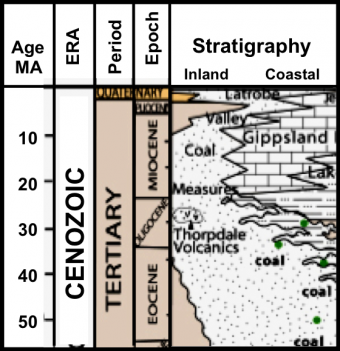In this lesson, we will examine the factors that make source rocks, like the right organic matter (plant or animal remains) under the right reaction conditions regarding time, burial, and temperature. Geochemists have developed a method to classify the organic material in a source rock, and are compartimentalized into three (3) main types. All else being equal, you would want to pursue source rock types that would be more likely to contain oil as opposed to gas. Beyond the organic materials, we will also discuss the physical conditions that the material undergoes, and how deposited organic matter transforms to hydrocarbons. We will summarize the material in a step-by-step approach for source and hydrocarbon generation analysis.
At the end of this lesson, the student should be able to:

This short course takes a brief look at what happens in the early stages of field exploration in the petroleum industry. The Gippsland Basin, offshore Australia, is the field example, and we start with a look prior to the first offshore licensing round of the field. Throughout the course, we will progress to the stage of management review of a wildcat well.
We encourage the reuse and dissemination of the material on this site as long as attribution is retained. To this end the material on this site, unless otherwise noted, is offered under Creative Commons Attribution (CC BY 4.0) license